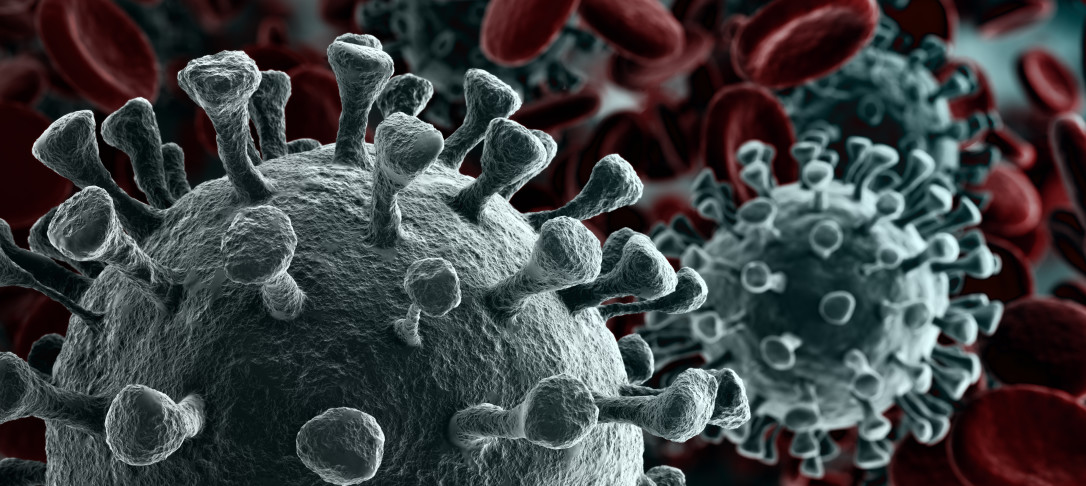
Imperial College Academic Health Science Centre (AHSC) is working at the forefront of research and patient care during the COVID-19 pandemic. In this online event, part of our series of AHSC Covid-19 seminars, two experts will talk about their research to develop and assess antibody tests for COVID-19. The seminar will be live and open to all.
Professor Graham Taylor, Professor of Human Retrovirology in the Department of Infectious Diseases at Imperial College London and Clinical Lead of the National Centre for Human Retrovirology at Imperial College Healthcare NHS Trust, is part of a team carrying out antibody testing to assess if a person has previously been infected with the coronavirus that causes COVID-19.
An antibody test is screening for antibodies in the blood which the body produces to fight infection, like COVID-19. It is believed people who have been infected and recovered from COVID-19 should not be contagious and may be immune to re-infection. These tests look for a component of the immune system called an antibody. These act as ‘record cards’ of any virus the body encounters, enabling the immune system to quickly recognise and destroy the virus upon reinfection.
The teams at St Mary’s Hospital and North West London Pathology based at Charing Cross Hospital, part of Imperial College Healthcare NHS Trust, preforms around 1,000 of these tests per day. The results will help indicate how many people had COVID-19 and recovered, including those who didn’t have symptoms.
Professor Helen Ward, Professor of Public Health at Imperial College London, is leading a national study to assess a range of different antibody tests for their accuracy and how easily people can use them at home without assistance from a healthcare professional.
The antibody tests will first be carried out on volunteers from Imperial Healthcare NHS Trust who are known to have had the virus, to establish their accuracy.
Secondly, a group of 300 members of the public will also be given a sample test to self-administer, which requires them to place a finger prick of blood onto a testing kit and read off the result. Researchers will then assess its acceptability and whether people understand the guidance on how to use it.
If the sample tests prove easy to use, they will then be distributed to a larger cohort of up to 15,000 people before being rolled out to 100,000 people later this year. It is hoped this can provide an indication of the prevalence of Covid-19 and possibly immunity based on the presence of coronavirus antibodies. This will help to further develop strategies to curb the COVID-19 pandemic.